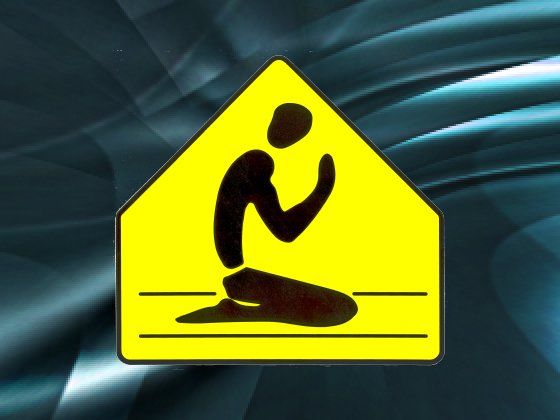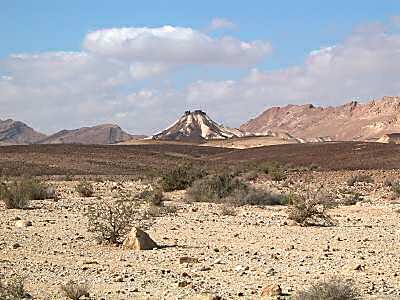
956-383-1635
Click Here to Aid Southern Baptist ministry among Ukraine refugees
Pastor's Blog
Pastor's Blog
From the Mind of a Missional Misfit

By David Alexander
•
October 13, 2020
The Supreme Court justice confirmation hearing is in full swing, the polls in Texas opened today. It's an understatement to say that politics are on full display and its a spiritually crucial time for us as a nation. There are many key topics that are impacting us today. Everyone may have their list of more important. Here are a few of mine in no really particular order: * The continued murder of babies, now adding up to 60 million over the past 50 years, for mostly the sake of convenience. Yes, I am unashamedly pro-life. The Republican and Democratic platforms are very clearly on opposite ends of this issue. Thankfully Republicans have embraced the Sanctity of Life while Democrats are even allowing abortion after the baby has been born (ie. Virginia). * The redefinition of marriage is the recent result of a sexual revolution that started many decades ago. This redefinition of what it means to be a man or woman made in the image of God has devastating consequences that are being seen already in our society. Again, the two main political parties are at two opposite ends of this issue. My sexual identity as a man was given to me at conception by God. People are created male or female. We live in a binary world. God decides this at conception. It is not dependent on how I feel or how I choose to see myself. I don't have a right to change this. Women cannot serve as fathers any more than a man can serve as a mother. As society continues to try and erase the gender distinctions, our community will continue to degrade and the social issues will worsen. * Having a government of limited size matters. Larger governments tend to get too much into my life and spend too much money that we don't have to spend; among other things. I pray our government will continue to allow religious liberty. There is already evidence of decreased religious liberty by some governmental factions in the USA. Socialism has never worked and will not work. I need less of Caesar and more of God. * Social justice is important. As a pro-lifer and parent to two minority children, my wife and I work hard to emphasize to our family that all are created in the image of God. Part of the motto of our church is to love God and love others. Whereas government cannot solve racism, those in authority need to proactively promote equality. But only by constant submission to Christ will a person defeat personal bias and prejudice. There are people in need around us. This is a mission for the Church. The government could do a better job in dealing with this, but handouts and entitlements are not the answer. Teach people "how to fish" rather than just "handing out fish." * Immigration laws that actually work. Neither party has done much of anything in the past 3 decades to fix this. Open borders are dangerous. Our government should keep our borders safe, but provide a reasonable way for immigrants to apply for entry. *The list goes on... I am sure you have similar topics of importance to you. This election is messy. It's hard to see past the character of the candidates. The media is not telling the truth on the issues. We definitely need to pray and seek God's wisdom and direction. May I suggest a resource to explore before you go to the polls? A website has been set up myfaithvotes.org There you will be able to examine the stance all of the candidates have who are running for office in all the states. Read the positions, pray for God to guide you so that you may vote on biblical conviction rather than emotion. More importantly, if you are a follower of Christ, the moment to give an answer of the hope that is in you to those around. Speak up with love, gentleness and boldness. Whatever the result, our God still reigns. His plan will not be thwarted. The church still has a mission.

By David Alexander
•
August 20, 2020
So I am officially fatigued. I have experienced various types of fatigue in my lifetime. This is not exhaustion or tiredness after a hard days work or grueling workout. This is fatigue; I have had several types of it: Emotional fatigue - since I hate confrontations, this occurs to me after having been criticized unfairly or had to confront someone for one reason or another. This doesn’t happen often. People fatigue - this happens on various levels. People who lack sense, who are lazy, or incompetent bring on fatigue. If I spend a lot of time having to converse, counsel, “perform” or be sociable, it wears me out. Don't misunderstand, I like people. As I pray for God to give me His perspective on people, I find I am burdened more and more by the secularism and syncretism ever more evident in our society. I still find it amusing that God has called me into the people business. So this fatigue I have learned to cope with. It's a good thing that in my weakness He is strong. Cultural fatigue - being a 3rd culture person, I have the blessing (or curse) of experiencing the best and worst of various cultures. Obviously what is good or bad about a culture is probably subjective on my part. Nonetheless, when the worst of a culture bombards me for a constant period of time, cultural fatigue sets in. It could happen with the rapid rise of secularism in the US, but I would equate that more to cultural frustration than fatigue. Pandemic fatigue - this is a new one. This is my current fatigue. It came on probably last weekend but I recognized it for what it is today. I am fatigued with COVID. Having to wear a mask, having to be health conscious and distant, not being able to gather, wondering if the person next to me is going to give me COVID, having to make decisions that affect a number of persons who will all have various different perspectives on COVID polity, hearing politicians blame each other for it. Yeah, I’m fatigued. I’m ready for this pandemic to be over. Amidst this, two things come to mind that cause me to realize my fatigue is 1)not a new thing, 2)not the worst thing to ever happen. Noah sent out the dove that came back with a branch. Yet he still had to wait 2 months before he could leave the ark. In regard to always being cautious, there are people living under severe religious persecution that are faced with this type of environment every single day - having to watch what you say or who you hang out with or how you conduct yourself. So yeah, I’m fatigued, but I still don’t have it so bad. So David, "suck it up and get on with it." So, what to do with this? There are things I must do even more intentionally. Seek time to replenish and refuel - Dr Pepper, good music and a good book. Be gentle and kind Be understanding. If I feel this way, I am sure all around me have various degrees of it. Think long before making decisions Listen and accept counsel of others Stay the course, keep the faith. Good thing the quality of my faith is measured by the object of my faith and not me. Looks good on paper anyway:) “Do not tire of doing good, for at the right time we will reap a harvest - if we do not give up.” Gal 6.9
By David Alexander
•
July 14, 2020
For I was hungry and you gave me food, I was thirsty and you gave me drink, I was a stranger and you welcomed me, I was naked and you clothed me, I was sick and you visited me, I was in prison and you came to me . Matthew 25.35-37 For our church family, COVID has hit home. For the past several weeks, our church family has had extended family and friends impacted by the virus. We saw some light as we began to meet again as a congregation. Now, we are once again on the brink of sheltering down and members of our church family are coming down with it; a deeper sense of reality sets in. People are understandably scared. Anxiety is up, nerves on edge, and the questions rise: why? God what are you up to? What do we do now? The Bible gives us answers, and history affirms the promise. Would you follow with me for a brief moment and let’s see how God’s people have responded to sickness throughout history? The Bible is the story of God. Through the pages of Scripture we witness God’s people facing all sorts of struggles and illnesses: Job, King Hezekiah, and Paul to name a few. In each case, their testimonies all concur with Paul as he writes concerning God’s faithfulness in 2 Corinthians 12.9, “my [referring to God] grace is sufficient for you, for my power is made perfect in weakness.” Around 150 AD, the Antonine Plague hit and killed about a quarter of the Roman Empire population. The Christians were persecuted and accused of being the cause insisting the epidemic was divine punishment against them because they would not pay homage to the Roman deities. Amidst the plague that affected Christians and others alike and in the face of the persecution, even while many people fled to protect their own lives, the Christian people embraced a responsibility to care for the sick and minister to the afflicted providing food and other assistance.1 Between 250 and 270AD the Plague of Cyprian devastated the Roman Empire. Interestingly, this plague coincided with a massive empire-wide persecution of Christians by emperor Decius who, again, blamed the Christians for the plague. Both Christians and pagans succumbed to the disease. But the emperor soon found the Roman people favoring the Christians who rose up again, despite widespread community panic, to care for those who were falling victim to the plague. When it seemed like the end of the world, Christianity spread rapidly as Christians demonstrated their faith was worth dying for. This selfless persistence eventually led one authority to observe, “these impious Galilaeans support not only their own poor, but ours as well.” In 1527, the Bubonic Plague, “Black Death,” hit Wittenburg, Germany, the home town of Martin Luther. Despite pressure to flee, Luther had a conviction to stay and help the infected even with a pregnant wife at home. In a letter to other pastors he stated, “According to this passage [Matthew 25.41-46], we are bound to each other in such a way that no one may forsake the other in his distress but is obliged to assist and help him as he himself would like to be helped. Martin Luther argued that hospitals and trained staff were a benefit when available, but that as a Christian, he had an obligation to love his neighbor as himself. His convictions on the matter were very strong and he urged people to recognize that the horror and fear that were presenting themselves were indicative of the intrinsic spiritual warfare taking place; that “Satan himself was driving them to anxiety, fear, and worst of all, ‘...to forget and lose Christ, our light and life...’”2 Luther went on to open his home as a ward to those infected and saw it as an opportunity to preach the gospel to the afflicted. In the span of 5 short years, Luther experienced excommunication from the church, the plague, and the death of his newborn daughter. Sometime during this time, Martin Luther authored the great hymn “A Might Fortress is Our God” based on Psalm 46. In early American history, Christian missionaries were essential in carrying medicine and supplies to Native Americans and others throughout the devastations of small pox, yellow fever, cholera and scarlet fever. Setting aside their own health and safety, Christians were among the first responders serving in hospitals and attending to, praying for and sitting with the sick even in their homes during the Spanish flu of 1918. Recently in Liberia, Dr Rowden led a team of Doctors Without Borders managing cases of Ebola victims. Their task brought them in direct contact with 10-25 infected people per day amidst a virus that spread chiefly by this means. When asked, Dr Rowden testified his strength came from his Christian faith and the support of his family. Many of the people fighting the Ebola virus in West Africa have been missionaries. The first hospital ever founded is credited to Christians in 369AD. “Charles Rosenberg shows in his volume, The Care of Strangers, The Rise of America’s Hospital System, the modern hospital owes its origins to Judeo-Christian compassion.”3 Since then, Christians have by far been the leaders in medicine and the development of hospitals and medical systems. Presently, I have witnessed how members of First Baptist Edinburg have continued to minister to each other and our community. I praise God for a church family that moves forward in faithful confidence in our Lord Jesus Christ. Throughout history, both biblical and afterward, God’s people have risen to the occasion to respond to crisis in bold faith, facing the storm in godly wisdom. This has been a testimony to the faith and hope they have in a living God. So how are we to continue to face this current plague? First, we will pray for God’s sustaining grace and peace. That we might remain confident that our Redeemer is faithful and true; our Father is good. Secondly, we will do all we can to be safe. God’s grants us wisdom and bold faith is not foolish. So, we wear masks, wash our hands, sanitize and keep socially distanced as much as we are able. But we do not hide. Thirdly, like Jesus and our fellow brothers and sisters in Christ throughout history, we are called to continue finding ways to love our neighbor and make disciples. Those who have repented and believed the gospel by faith alone in Christ alone by God’s grace alone, are called to “fear not” for our living hope is Christ and our eternal future is secure by the Holy Spirit. Our master leads us onward. Finally, as we experience close family and friends affected by this present plague, or we join those who are personally suffering its ill affect, we are burdened to pray without ceasing that God would walk with us, even carry us, through this storm. We cry out for deliverance (2 Sam 22.2) as we also pray like Paul that we “will boast all the more gladly of [our] weaknesses, so that the power of Christ may rest on [us].”4 I don’t know how or when we will come out of this present darkness. But that is ok. “I know whom I have believed and am persuaded that He is able to keep that which I have committed unto him against that day.” (2 Timothy 1.12) May God’s grace and peace be with us all, David A Alexander, senior pastor, First Baptist Edinburg References 1 Jessica Brodie. How did early Christians Face Pandemics?. Https://www.crosswalk.com/faith/spiritual-life/how-did-early-christians-face-pandemics.html 2 Grayson Gilbert, Martin Luther and His Incredible Response to the Black Plague. March 5, 2020. https://www.patheos.com/blogs/chorusinthechaos/martin-luther-and-the-black-plague/. Accessed July 14, 2020. 3 Biblemesh. The Christian Origins of Hospitals. https://biblemesh.com/blog/the-christian-origins-of-hospitals/. Accessed on July 14, 2020. 4 2 Corinthians 12.10, ESV.

By David Alexander
•
April 1, 2020
Often times relegated to the scope of a lucky charm, talisman or magic lamp, prayer is sometimes one of those things we just turn to when we need something or we’ve tried everything else. Prayer is not a last recourse. It is a vital necessity for the fulfillment of our life and personal ministry. The Reality of Prayer To engage in prayer is to admit: there is a God, He wants to enter into conversation, we can communicate with Him directly (through Jesus, God's Son), He is sovereign and worthy, and we are totally dependent on Him for everything. As Tim Keller puts it, prayer is a response to the knowledge of God. If that knowledge is too vague, then the prayer is more of a general cry for help and cannot reach true conversation. For the Christian, prayer is a spiritual gift. It is God's design to provide for our daily interaction with Him and to fellowship with Him. Paul affirms in his letter to the Galatians (Gal 4.5-6) , prayer is the Holy Spirit’s work in us to give us an unclouded understanding of God enabling us to converse with God as our Father. What Christ followers know about God comes with verbal specificity through Scripture. God speaks to us through His word and we respond in prayer. As knowledge and comprehension increase, prayers deepen and conversation richens. The resource of prayer In Paul's letter to the Romans (Rom 15.30), Paul pleads with the Roman church to "[strive] together in prayer.” Prayer is not just a symbolic act. When we pray, it is an intentional labor. Abraham Lincoln expressed his reliance on prayer, “I have been driven many times upon my knees by the overwhelming conviction that I had no where else to go. My own wisdom and that of all about me seemed insufficient for that day.” When we intercede for someone, it is an intentional labor of love. James tells us that the fervent/constant/intentional prayer of a righteous person (a person who is right with God) avails much. The Romans were too far away to aid Paul in Jerusalem. But they had work to do. They needed to pray. Too often, we don’t labor enough in prayer. We say our little phrase and then go about our business. Paul begs, pleads based on his unity and relationship with the church in Rome through Jesus Christ and depending on the love they would share with him by having achieved that agape love he has been telling them about. This oneness and this love would be motivation that would drive them to respond to his plea. Paul knows, even given the distance, the church in Rome can do something extremely vital for him. That is prayer. Oswald Chambers wrote, “Prayer does not just fit us for the greater work. Prayer is the greater work.” Before we do, ask God. While we do, communicate with God for continued wisdom and guidance. After we do, thank God for His provision and help. The relationship through prayer. Prayer is communication. Coupled with Scripture, it becomes a two way conversation between the Father and I. Communication is one of the means for improving relationship. A relationship will not grow without it. Interceding is talking to God on someone else's behalf. We get to pray for each other. When we can’t physically be there, when we are powerless to do anything else, we pray. Prayer is a first resort to action, it is a last resort to action. Prayer is our first recourse. Then, prayer is not enough when God is telling you to act. Prayer is the act when you can’t do anything else. Intercession forces me into a relationship with the one I am praying for. I may never meet them in person, but I become acutely aware that they exis and they are of value to God. A Oswald Chambers puts it, intercession exhorts me to raise myself "up to the point of getting the mind of Christ regarding the person for whom [I] am praying (Phil 2.5)." Prayer for one another heightens our relationship with each other. The Reason for prayer There are many reasons to pray. We pray to worship God, praising Him, acknowledging His lordship, His glory and His attributes that He constantly demonstrates as He labors for our good (Ps 8.1). We pray for confession (Ps 51) and to aks for a re-establishment or our communion with God through His grace and forgiveness. We pray to intercede. We pray for God's intervention; to be delivered from those against God (Romans 15.31) There are those around us who: care not for God and they intentionally work against those who do or care nothing for God and their actions unintentionally obstruct, hinder or distract. There are also those who care for God, but their busyness obstructs God’s will for us. In Romans 15.31, Paul prayed for his service to be accepted by the church; sufficient and efficient for the gospel. The prayer that what we do, will be accepted as having facilitated kingdom progress or edified the people of God. That we might live in joy 1)celebrating the Kingdom work accomplished, 2)peace at a job accomplished and ready for the next thing. It is good to live without the feeling of something undone, something hanging over us or some relationship out of sorts. Earlier in Rom 15.29, Paul expresses confidence that his going to Rome would be fully in God’s blessing. Paul had completed his task in Asia, He had waited for God’s timing to move to the next task, and that time had come. Paul prays that he might be refreshment to his brothers and sisters in Christ. When I relate to someone else, will that encounter refresh them or exhaust them? Refreshing also means bearing each other’s burdens. Pray for renewal – spiritually, emotionally and physically. The Recourse of prayer The only reason there is any power or effectiveness in our prayer is due to the one we are turning to for help. Our recourse, our source of strength is God. Max Lucado says “our prayers may be awkward. Our attempts may be feeble. But since the power of prayer is in the one who hears it and not in the one who says it, our prayers do make a difference.” He is the God. He is the only one. Paul declares God as "the God of peace." Only He provides satisfaction, deliverance from anxiety and worry, freedom from chains of sin, solution to our bad relationships. Peace comes: in the assurance of a right relationship with God and in knowing we are in His will. So, He’s got this. We end our prayers as those in Scripture do, with an "amen." So often we take “amen” for granted. We "rush" through it as just a proper conclusion. "Its what you do." But the "amen" is so much more. It is the final acknowledgment of “let it so be.” Corporately we are saying, “yeah, ditto, what he said.” It is the acknowledgment that all we have just said, through Christ as our mediator, with the help of the Holy Spirit helping us to pray (Rom 8.14), is laid at the feet of God the Father for His wise intervention. It is the affirmation that God, and only God, is able. That once laid in His care, our adoration, confession, thanksgiving and supplication is in the best place it could possibly be. And all the people said “we affirm that.” “So it is.” Amen. RESOURCE: (click on resource name to download file) 30 Days of Prayer Through the Psalms - a great way to spend these days improving our conversations with our Heavenly Father. 21 Day Prayer Journal

By David Alexander
•
March 16, 2020
In my Scripture reading this morning, I was reminded of the children of Israel who wandered in the wilderness for 40 years. A whole generation was born and grew up in the Wilderness of Sin (or Zin) just south of Canaan or Palestine. For this generation, being in the wilderness was not their fault nor their choice. Yet it was their reality. For much of this time, God led them in slow circles around a certain mountain. This wilderness was far from lush tropical paradise. Yet, God led them and provided for them. "For the LORD your God has blessed you in all the work of your hands. He knows your going through this great wilderness. These forty years the LORD your God has been with you. You have lacked nothing. " - Deuteronomy 2.7-8 1) God blessed them. This is in keeping with His promise to Abraham in Gen 12.2-3 that He would bless His people. 2) God blessed them in all the work of their hands. Despite being in the wilderness, the people worked. They did what they needed to do. Life and responsibility does not end when our journey leads us through wilderness or when storms overtake us. God has blessed us with work. This work is for our benefit, our provision, our means of contributing, and because we were created to do good works that God ordained since the beginning of time. He is the master and we are the servants to be faithful stewards. In their faithful work, God blessed them. 3) God reassures them that He knows they are going through this wilderness. It was no ordinary wilderness. It was a great wilderness. There was never a moment that God was not aware of their situation. God does not sleep. He is ever vigilant. He does not go on vacation or lose focus. He does not have ADD. He is constantly aware of the situation of every one, especially His children. 4) God is present. He was with the Israelites for every second, minute, hour, day and year of their time in the wilderness. He is always there. We, on the other hand, occasionally, sometimes, regularly drift. Like a person who gets distracted texting while trying to walk or drive, we drift because our focus is not where it should be. Peter, even with a storm on the horizon, walked on water while he was focused on Jesus. But when he got distracted, that's when he sank. In the wilderness, despair, depression and panic sets in when we look at our environment instead of our Savior. 5) The Israelites lacked for nada, zip, zilch, niente, nichts, rien, nic, niets, nothing. Moses accounts how their clothing and shoes never wore out. God provided sufficient water and food for them and all of their livestock. That is enough food for over 3 million people on a daily basis plus animals. Despite 40 years in the wilderness, when they finally headed north toward Canaan, they had money to pay the Edomites and Moabites for food and water. God provided. David praises the Lord in Psalm 36 declaring "Your steadfast love, O LORD, extends to the heavens, your faithfulness to the clouds." Jeremiah cries out "The steadfast love of the Lord never ceases. . ." In whatever wilderness you, as a follower of Christ, may find yourself approaching, in, or leaving, surely goodness and mercy will follow you and may you seek to dwell in the presence of the Lord forever.

By David Alexander
•
March 12, 2020
One of my favorite music artists, Peter Cetera affirms a very real issue in our social media driven world, The whole world is talking Drowning out my voice How can I hear myself With all this noise... In the barrage of audio cacophony, when "google" can give 100+ unfiltered answers to any question within seconds, amidst 1000 facebook friends that one has rarely met and myriads of followers sending unrequested images, soundbytes, vidbits, tiktoks and tweets, each voicing their expert opinion on any and all subjects, is there a space for one more? If there were, would anyone pay attention? As your pastor, I am honored and extremely humbled to have your attention for at least a short while each Sunday morning. It is one of the joys of my life to serve as an undershepherd to you. It is not taken for granted that I have been lent a platform that garners some attention. May this platform always source from a search for the heart of God and wisdom solely from Him in order to entrust to others what I have learned and experienced as I myself journey with Christ. May this blog be just an extension of that platform; another outlet for our FBE folks and whomever to find insightful information sourced in The Truth to aid their daily walk. Peter Cetera goes on to acknowledge: But all this confusion just disappears When I find a quiet place where I can hear One clear voice, calling out for me to listen One clear voice, whispers words of wisdom I close my eyes 'till I find what I've been missing If I'm very still, I will hear one clear voice Elijah found God's still small voice in the quietness of a breeze. I pray that amidst the noise and hustle of your daily grind, you will discover the means to filter out the noise, so you can hear and pay attention to God's clear voice; maybe even a quiet place to meet with God and be able to listen to Him clearly, getting to know Him more deeply. Perhaps this blog might facilitate that discovery. On the Journey, David A Alexander senior pastor, First Baptist Edinburg
ADDRESS
First Baptist Edinburg
201 E Samano St.
Edinburg, TX 78539
OFFICE HOURS
Offices are open. We welcome visitors. To meet with the pastor, best to call for an appointment.
- Mon - Fri
- -
- Saturday
- Closed
- Sunday
- -
SUNDAYS
Worship Service
11 AM English
11 AM Español
Adult Bible Study
9:45 am English
9.45 am Español
FBE Youth at 9:45am
FBE Kids at 9:45am
Nursery available during
Adult Bible Fellowship times
and during
the worship service



